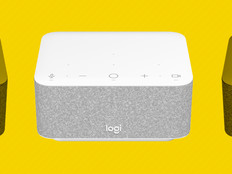What Changes Can the Education IT World Expect?
Includes information on the “next big things,” blade servers and colleges with computer purchase policies.
What’s Next?
According to Forrester Research in Cambridge, Mass., here are some of the “next big things”:
* Digital Business Architecture: A possible successor to Web-based applications, DBA is a new IT architecture stack. It has inexpensive, virtualized hardware and network resources at the bottom, shared services and software in the middle, and business intelligence and interaction platforms at the top.
* Extended Internet: The X Internet connects digital information systems to physical objects and devices. It encompasses new Internet architecture and applications, including radio frequency identification (RFID), mobile networking, telematics and biometrics.
* Innovation Networks: Companies are becoming more innovative by drawing on talented individuals and specialist firms from around the world. These collaborative ties are known as Innovation Networks, which represent a new business model for R&D and software development.
Blade Runner
According to a report from Gartner Dataquest, headquartered in Stamford, Conn., blade server shipments will continue to grow over the next five years, fueled by a number of factors, including:
• The explosive growth of wireless connections requires greater Web infrastructure.
• Because blade servers share multiple servers in a single housing, there is a potential cost savings in the number of cables and input/output devices needed.
• Blade servers are replacing older non-blade systems in high-performance computing environments.
Worldwide Blade Server Forecast, 2005-2010
2005
Shipments (K Units): 536.5
Revenue (US$M): $2,272.8
ASP* (US$): $4,236
2006
Shipments (K Units): 804.8
Revenue (US$M): $3,204.6
ASP* (US$): $3,982
2007
Shipments (K Units): 1,166.9
Revenue (US$M): $4,414.3
ASP* (US$): $3,783
2008
Shipments (K Units): 1,458.6
Revenue (US$M): $5,407.5
ASP* (US$): $3,707
2009
Shipments (K Units): 1,750.4
Revenue (US$M): $6,424.2
ASP* (US$): $3,670
2010
Shipments (K Units): 1,925.4
Revenue (US$M): $6,995.9
ASP* (US$): $3,633
CAGR (compound annual growth rate) (%) 2005-2010
Shipments (K Units): 29.1%
Revenue (US$M): 25.2%
ASP* (US$): -3%
SOURCE: GARTNER DATAQUEST (JUNE 2005); *ASP IS AVERAGE SELLING PRICE
PC 101
Percentage of campuses reporting computer purchase policies for all undergraduates in fall 2004:
Public 2-year Colleges
Required: 1.9%
Recommended: 7.6%
Private 4-year Colleges
Required: 7.4%
Recommended: 54.2%
Public 4-year Colleges
Required: 9.6%
Recommended: 43.3%
Private Universities
Required: 15.4%
Recommended: 46.2%
Public Universities
Required: 5.6%
Recommended: 41.7%
All Institutions
Required: 7%
Recommended: 39.8%
SOURCE: THE CAMPUS COMPUTING PROJECT







